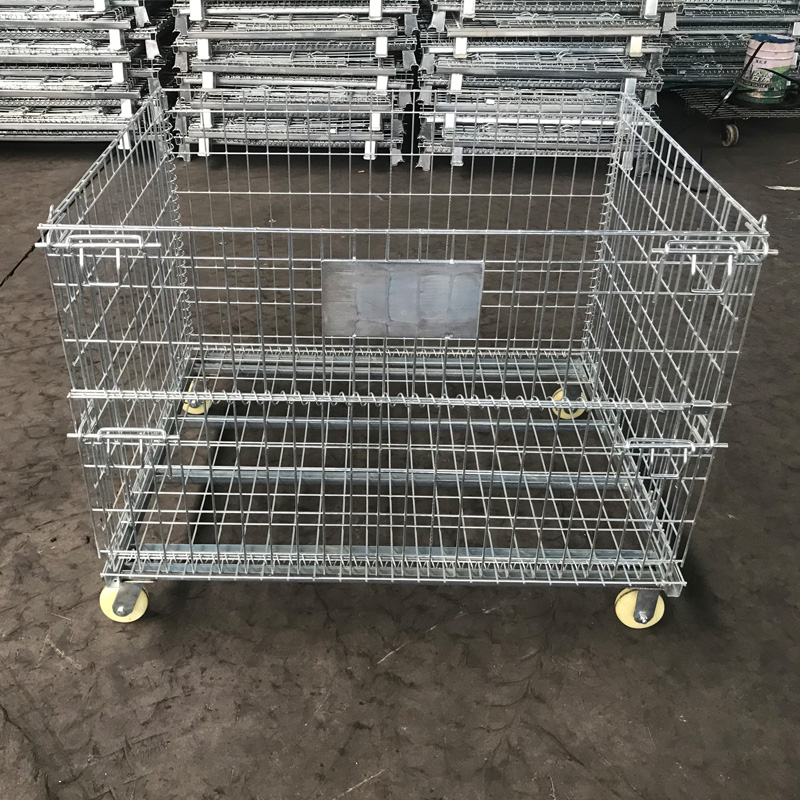
- Mobile Phone
- +8613931874955
- sales@cntcmetal.com
Properties and Applications of Nickel Iron Wire in Industrial Use
Exploring the Versatility of Nickel-Iron Wire
Nickel-iron wire, commonly known as NiFe wire, is an alloy that has garnered attention across various industries due to its unique properties and versatility. Comprising nickel and iron, this alloy exhibits several characteristics that make it suitable for a wide range of applications, from electronics to robotics.
Composition and Properties
Nickel-iron wire typically consists of a high percentage of nickel (ranging from 35% to 80%) and the remaining composition being iron. This specific blend results in several valuable properties, such as high tensile strength, corrosion resistance, and excellent electrical conductivity. The presence of nickel enhances the wire's resistance to oxidation, making it particularly useful in environments that are subject to harsh conditions.
Another noteworthy property of nickel-iron wire is its ability to be magnetically permeable. This means that it can conduct magnetic fields, making it an excellent choice for applications in electromagnetic systems. Additionally, nickel-iron wire possesses a high saturation magnetization, which allows it to maintain significant magnetic properties even when subjected to external magnetic fields.
Applications in Electronics
The electronics industry has greatly benefited from the properties of nickel-iron wire. It is commonly used in the manufacturing of various electronic components, such as transformers, inductors, and relays. The wire's low hysteresis loss is a critical factor in designing efficient electromagnetic devices. As electronic devices become more sophisticated, the demand for high-performance materials like nickel-iron wire continues to rise.
Moreover, nickel-iron wire is often used in inductors due to its ability to withstand high currents without excessive heating. This characteristic is vital in ensuring the durability and efficiency of devices like power supplies and radio frequency applications. The wire's low electrical resistance and reliable performance have made it a staple in circuit designs, facilitating the development of compact and energy-efficient systems.
nickel iron wire

Robotics and Sensors
In robotics, nickel-iron wire provides numerous advantages, particularly in the creation of sensors and actuators. Its magnetic properties make it ideal for constructing precise position sensors and magnetic switches, which are essential in robotic applications. These sensors allow for accurate real-time data monitoring, enhancing the performance and reliability of robotic systems.
Furthermore, the flexibility of nickel-iron wire enables engineers to design intricate mechanisms and components that can efficiently respond to various stimuli. This flexibility, combined with the wire's strength, allows for the creation of durable robotic limbs and other components that require a balance of resilience and adaptability.
Medical Applications
The medical field is another area where nickel-iron wire has found its place. Its biocompatibility and resistance to corrosion make it suitable for various surgical instruments and implants. For example, it is used in certain types of orthopedic tools and devices, where mechanical strength and the ability to withstand bodily fluids are crucial.
Additionally, nickel-iron wire is utilized in the development of magnetic resonance imaging (MRI) equipment. The wire's magnetic properties contribute to the effectiveness of imaging systems, enabling better visualization of internal bodily structures. As the medical industry continues to innovate, the role of nickel-iron wire is expected to expand, potentially leading to new therapies and diagnostic tools.
Conclusion
In conclusion, nickel-iron wire is a remarkable alloy that offers a plethora of benefits across multiple sectors. Its unique combination of strength, flexibility, and magnetic properties makes it an indispensable material in electronics, robotics, and medical applications. As technology continues to advance, the demand for nickel-iron wire is anticipated to grow, paving the way for new innovations that leverage its exceptional characteristics. Whether in the form of intricate electronic components or sophisticated robotic systems, the impact of nickel-iron wire is profound and far-reaching, underscoring its significance in the modern technological landscape.
share:
-
Why Sacrificial Formwork Is Redefining Underground ConstructionNewsJun.06,2025
-
The Structural Dynamics of Modern Concrete: How Snake Spacers Revolutionize Flexible ReinforcementNewsJun.06,2025
-
Snake Spacers Smart-Lock Concrete Reinforcement with Surgical PrecisionNewsJun.06,2025
-
Snake Spacers: Reinforcement Precision for Modern Concrete ProjectsNewsJun.06,2025
-
Snake Spacers Powering Concrete's Structural DNANewsJun.06,2025
-
Slither into Success: Snake Spacers' Precision Bite for Unbreakable ReinforcementNewsJun.06,2025
-
Sacrificial Formwork: Building Stronger, Faster, and Safer StructuresNewsJun.06,2025



















